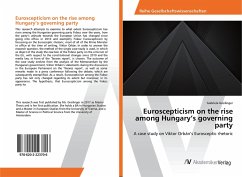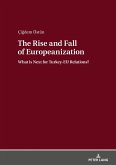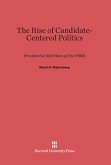This research attempts to examine to what extent Euroscepticism has risen among the Hungarian governing party Fidesz over the years, how the party's attitude towards the European Union has changed since going into office in 2010 and exemplify Fidesz Euroscepticism by focussing on the Eurosceptic rhetoric, most of all of the Prime Minister in office at the time of writing, Viktor Orbán. In order to answer the research question, the method of the single case-study is used, in which as object of the study the reaction of the Fidesz party on the criticism of the EU, with respect to the constitutional changes since 2010 and the media law, in form of the 'Tavares report', is chosen. The outcome of the case study evolves from the analysis of the Memorandum by the Hungarian government, Viktor Orbán's statements during the discussion in the European Parliament on the 'Tavares report', as well as some remarks made in a press conference following the debate, which are subsequently exemplified. As a result, Euroscepticism among the Fidesz party has not only changed regarding its extent but moreover, in its appearance. The hypothesis, that Euroscepticism among the Fidesz party ha
Bitte wählen Sie Ihr Anliegen aus.
Rechnungen
Retourenschein anfordern
Bestellstatus
Storno








